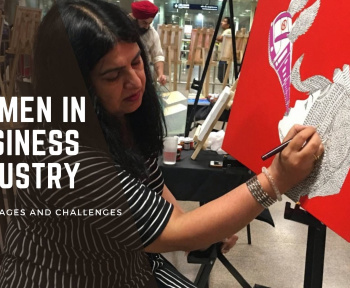Interest plays a very important role in Career Planning. As interest described in other sub-factors which will described in detail regards of impact in career decision making.
As per Wikipedia, Interest defined as a feeling or emotion that causes attention to focus on an object, event, or process. In practical life, Interest defined as the Individual feels comfortable, easy and able to give more attention & focus on an object or work. For example, anybody feels comfortable, quick, and easy during solving mathematics that means that individual has interest in mathematics.
Importance of Interest in Career Decision Making:
Interest plays a very important role in career decision, planning. Interest provides the information about the area of likeliness and the field in which individual feels comfortable & easy. So, Interest plays a central role when the matter of career planning/mapping comes into the picture.
As per Holland’s theory, Interest Influenced by six vocational personality types and these are Realistic, Investigative, Artistic, Social, Enterprising and Conventional and these are also called RIASEC in short.
Realistic: Realistic individuals are active and stable and enjoy hands-on or manual activities, such as building, mechanics, machinery operation and athletics. They prefer to work with things rather than ideas and people. People who fall into this category generally prefer to “learn by doing” in a practical, task-oriented setting, as opposed to spending extended periods of time in a classroom.
Investigative: Investigative individuals are analytical, intellectual and observant and enjoy research, mathematical or scientific activities. They are drawn to ambiguous challenges and may be stifled in highly structured environments. People who fall into this category enjoy using logic and solving highly complex, abstract problems.
Artistic: Artistic individuals are original, intuitive and imaginative and enjoy creative activities, such as composing or playing music, writing, drawing or painting and acting in or directing stage productions. They seek opportunities for self-expression through artistic creation. People who fall into this category prefer flexibility and ambiguity and have an aversion to convention and conformity. The preferred work environment of the artistic type fosters creative competencies and encourages originality and use of the imagination in a flexible, unstructured setting.
Social: Social individuals are humanistic, idealistic, responsible and concerned with the welfare of others. They enjoy participating in group activities and helping, training, healing, counseling or developing others. They are generally focused on human relationships and enjoy social activities and solving interpersonal problems. They view themselves as understanding, helpful, cheerful and skilled in teaching but lacking in mechanical ability.
Enterprising: Enterprising individuals are energetic, ambitious, adventurous, sociable and self-confident. They enjoy activities that require them to persuade others, such as sales, and seek out leadership roles. They are often effective public speakers and are generally sociable but may be viewed as domineering. They view themselves as assertive, self-confident and skilled in leadership and speaking but lacking in scientific abilities.
Conventional: Conventional individuals are efficient, careful, conforming, organized and conscientious. They are comfortable working within an established chain of command and prefer carrying out well-defined instructions over assuming leadership roles. They prefer organized, systematic activities and have an aversion to ambiguity. Conventional types view themselves as responsible, orderly and efficient, and possessing clerical, organizational and numerical abilities.
(Reference: Holland’s Theory published by Johns Hopkins School of Medicine Office of Faculty Development, the Career Management Program, Johns Hopkins University)
So, all these six vocational personality types play a significant role in deciding Interest in Individuals. With the consideration of these six factors, Individual’s likeliness towards nature, work, environment, etc. identified which help individuals in career decision/planning/mapping.
We always use interest in day to day life in common discussions but never thought for its career-oriented meaning that how it will help in career making/planning. So, now I am sure after reading this article, the reader must assess themselves and think Interest technically and relate it to a career.
Article Authored by- JYOTI GAUR, DIRECTOR, JMS FIRMS, DEHRADUN
EDUPRENEUR / MEDICAL COUNSELLING EXPERT





1 Comment
Manit
Great